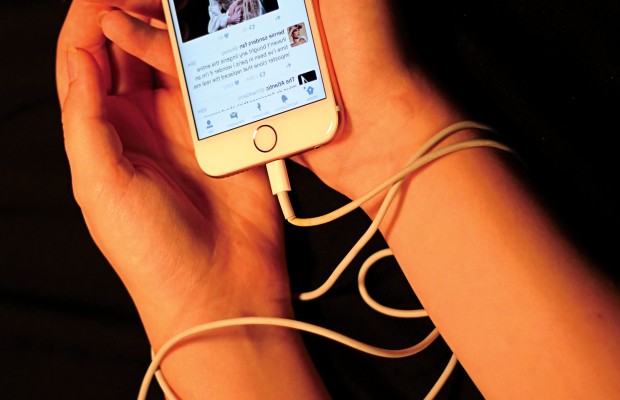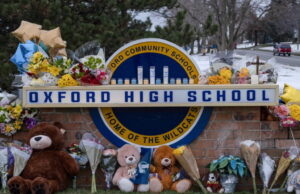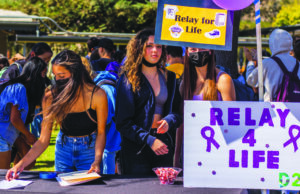Online Activism: with the rise of the internet, fighting for a cause takes on a new form

Growing internet movements change the world
Internet movements are the modern picket line for the average American. With the implementation and extremely rapid growth of new social media platforms such as Twitter and Facebook, millions of people now have the ability to share their voices with the rest of the world.
According to statista.com, Twitter currently has 332 million users, which is more than the population of the United States, and Facebook has 1.59 billion monthly users, which is more than the population of China.
With this increasingly large audience, social advocates and regular people alike are taking their protests off the streets and bringing them onto various social media sites.
According to senior Rudra Sharma, the growth of online movements has helped people with similar views come “together and organize at the most important times.”
Movements like the ALS Ice Bucket Challenge, #HeForShe, #LikeAGirl, #BlackLivesMatter and #FreeKesha all began as online reactions to social issues. The groups raise money to defeat deathly diseases, tackle stereotypes, police brutality, and sexual harassment.
In 2014, the world got swept up in the ALS Ice Bucket Challenge. Many took the challenge, posted a video, and challenged 3 friends. Awareness of Amyotrophic Lateral Sclerosis increased tremendously and close to $100 million was raised. The fun challenge gained attention, inspired many to research ALS, and prompted some to donate.
In 2015 the hashtag #HeForShe had international exposure thanks to campaign spokeswoman Emma Watson and a slew of celebrity support from the likes of Harry Styles, Russell Crow and Joseph Gordon-Levitt. The goal was to get males involved in the battle for gender equality.
According to Elizabeth Nyamayaro, a senior advisor at UN Women, there are real lives that have been changed thanks to this campaign. “One story that I like to share is (of) a man in Zimbabwe who, after hearing about the HeForShe campaign, started a husband school—he went around his village and collected all the men who beat up their wives, and now it’s his mission to make sure that these men become advocates, that they become good husbands for their wives. (It’s) a very simple thing but it’s effective.”
The #LikeAGirl campaign was a concerted effort to change the way girls thought about themselves and released a video demonstrating what people think it means to run, fight or throw “like a girl.” It attempts to change social norms in order to assert that being female does not prevent you from being strong or capable.
The increase in internet movements and online activism has given rise to a new type of social media user. There are now huge numbers of Twitter, Facebook, and Instagram accounts dedicated to progressing the goals of a particular cause or ideology. Some users may spend hours a day spreading the messages and making the case for their particular movement.
Cole Carlson, senior, believes the biggest reason that internet movements have grown so rapidly is because of increased global interaction and the relative ease of voicing one’s beliefs. “It’s easier to say things than do them,” Carlson said.
In this technological age, the nation’s picket line has been cleared of its posters and pitchforks and has been replaced with smartphones and social media pages.
“I think internet movements bring global issues into the public and daily life. They inspire people to take action depending on the issue and spread awareness like the ice bucket challenge did for ALS,” Michelle Rothman, freshman, said. “I think it also depends on the movement that’s gaining attention because maybe the Kylie Jenner lip challenge won’t affect one’s life but a body positivity movement will.”
Behind the scenes of #FreeKesha
Social media has exploded with the hashtag #FreeKesha in response to a controversy between Kesha and Sony Entertainment.
After testifying as having been raped by her music producer, Lukasz Sebastian “Dr. Luke” Gottwald, pop singer Kesha attempted to cut ties with Sony Music Entertainment. To the public’s astonishment, New York Supreme Court Justice Shirley Kornreich refused to terminate the contract and ignored Kesha’s claim of rape. This refusal led to the explosive internet movement, #FreeKesha.
After her hit single “Die Young” was released in 2012, popular singer Kesha seemed to drop off the music scene. She was later found to have checked into a rehabilitation center in Chicago for an eating disorder in early 2014.
According to Kesha, the development of her eating disorder was directly related to continual sexual harassment by her producer, Dr. Luke.
When she brought these allegations to the court, Kesha asked to be released from her contract with Sony. However Dr. Luke fired back with his own lawsuit, denying the accusations, and with the support of Sony, the case was not resolved.
When Justice Shirley Kornreich made the decision to prohibit Kesha from terminating her contract, she added how Kesha at least “is being given the opportunity to record.”
Active Twitter user, Maria Luciani, junior, has expressed her own opinions regarding the #FreeKesha movement.
“There are always going to be people in these cases arguing that the victim is accusing an innocent person,” Maria Luciani said. “The part that makes this frustrating is that only people who have actually felt what it’s like to be forced into doing something with your body you do not want to do will know that there is absolutely no way to lie about any of it.”
After the court’s refusal to terminate Kesha’s contract , social media exploded with support from Kesha’s fans, creating the tag “#FreeKesha” with the free representing how Kesha should be freed from her contract with Sony.
“The ruling was really a negative reflection of our court systems, but I think it helped to spread awareness of the issue through the use of social media. It’s inspired a national discussion on the subject of sexual abuse and how many rapists are never convicted of their crimes,” Miranda Barraza, junior, said.
Even celebrities have weighed in on the issue, adding their own support for Kesha through tweets ranging from “my heart is with @KeshaRose,” tweeted by Lady Gaga to “trying 2 not say anything since I can’t say anything nice about a person… so this is me not talking about Dr. Luke,” by Kelly Clarkson.
The prevalence on social media has brought enough attention to the issue that some have aided monetarily along with verbally; singer Taylor Swift donated $250,000 to Kesha’s cause.
“The fact that celebrities are pledging themselves to Kesha and aiding her with money and personal support in her fight to be freed from her contract really shows how important the issue is,” Barraza said.
In the context of the immense pressure from the internet movement, there have now been reports that Sony is dropping Dr. Luke from their label. Although these reports are disputed, the #FreeKesha has brought the issue to the screens of a large number of people.
“The internet is incredible because it’s this platform allows for this rapid distribution of information in the blink of an eye. The Internet has had a profound effect on movements like … #FreeKesha because it allows people will similar ideologies to come together and express their constitutional rights of freedom of assembly, religion, petition, speech, and press,” Alex Sefayan, senior, said.




